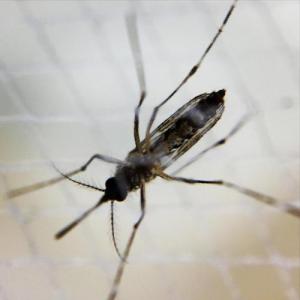Zika infection during pregnancy may disrupt fetal oxygen supply
NIH-funded study observes virus-induced placental damage in monkeys.
Zika virus infection appears to affect oxygen delivery to the fetuses of pregnant monkeys, according to a small study funded by the National Institutes of Health. Researchers also observed a high degree of inflammation in the placenta and lining of the uterus, which can harm the fetal immune system and increase a newborn’s susceptibility to additional infections.

A female Aedes mosquito.
Zika virus infection among pregnant women can lead to developmental problems in fetuses and newborns. In the current study, researchers led by Daniel Streblow, Ph.D., of the Vaccine & Gene Therapy Institute at Oregon National Primate Research Center, used non-invasive imaging to evaluate how persistent Zika infection affects pregnancy in five rhesus macaques. The team found that the virus induces high levels of inflammation in the blood vessels of the uterus and damages placental villi, the branch-like growths that help transfer oxygen and nutrients from maternal blood to the fetus. The researchers suggest that this damage may disrupt oxygen transport to the fetus, which can restrict its growth and lead to stillbirth, among other conditions.
The team observed evidence of fetal brain abnormalities in two of the five animals, but the researchers did not see any obvious signs of microcephaly. This finding, they reason, is consistent with previous studies that establish microcephaly as only one of a spectrum of Zika-induced complications. The authors call for additional studies to improve knowledge of how Zika virus causes infection during pregnancy.
Source: U.S. National Institutes of Health
- 269 reads
Human Rights
Ringing FOWPAL’s Peace Bell for the World:Nobel Peace Prize Laureates’ Visions and Actions

Protecting the World’s Cultural Diversity for a Sustainable Future

The Peace Bell Resonates at the 27th Eurasian Economic Summit

Declaration of World Day of the Power of Hope Endorsed by People in 158 Nations

Puppet Show I International Friendship Day 2020

